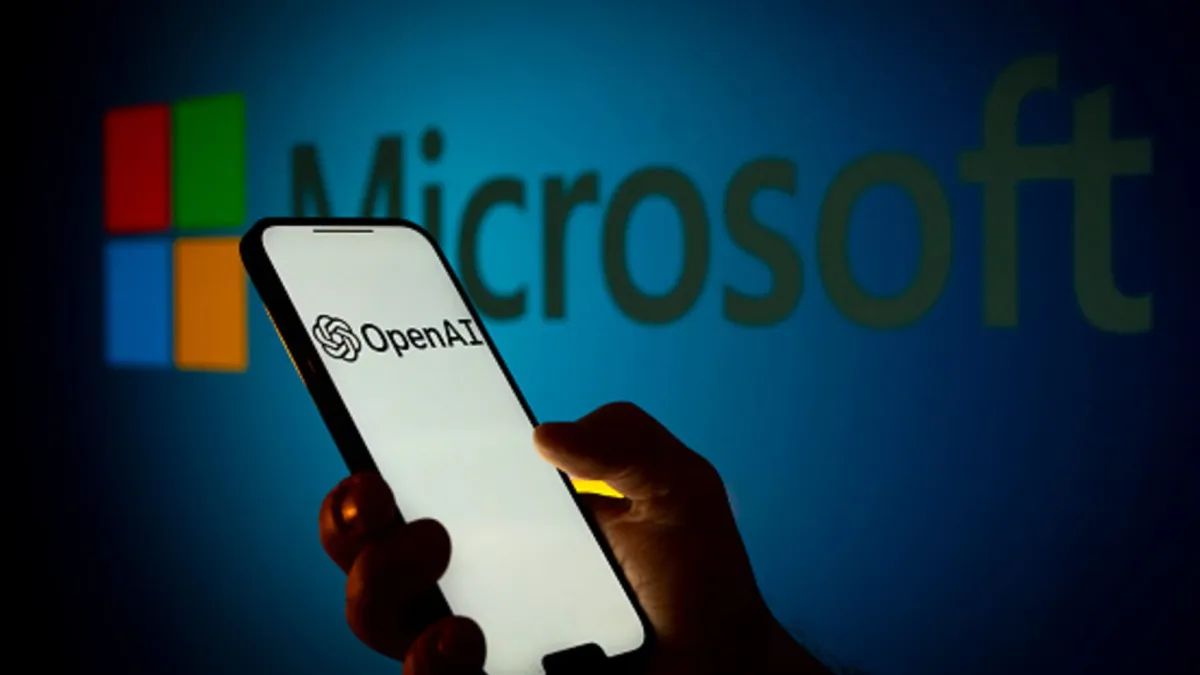Necessary Always Active
Necessary cookies are required to enable the basic features of this site, such as providing secure log-in or adjusting your consent preferences. These cookies do not store any personally identifiable data.
|
||||||
|
||||||
|
||||||
|

Microsoft and OpenAI have signed a non-binding deal, effectively enabling OpenAI to restructure into a for-profit company. According to Reuters, the Microsoft and OpenAI non-binding deal outlines the new terms for their relationship, paving the way for a new phase for both companies.
Microsoft is OpenAI’s largest investor having invested $1 billion in the AI startup in 2019 followed by an additional $10 billion in January 2023. Under the new partnership deal, OpenAI will convert its for-profit arm into a public benefit corporation. If approved by state regulators, this shift will enable OpenAI to raise capital from investors and become a publicly listed company.
OpenAI’s board chair Bret Taylor said that under the new Microsoft-OpenAI agreement, the
AI startup will retain its non-profit arm under the non-binding agreement. The non-profit arm will maintain control over the operations of the OpenAI public benefit corporation and will hold a stake valued at more than $100 billion. This is about 20% of the $500 billion valuation that OpenAI is seeking in the private market.
Although details of the new Microsoft-OpenAI deal were not made public, both entities said they are finalizing the terms of a definitive agreement. The move marks a significant step in OpenAI’s extended discussions with Microsoft as the AI startup seeks to attract capital through an IPO and a common governance structure to fund AI development.
OpenAI and Microsoft have been renegotiating their multibillion-dollar partnership and redefining their strategic alliance since May 2025. Their discussions have been largely focused on whether Microsoft will continue to invest in OpenAI’s for-profit business and ensure further use of upcoming AI innovations.
Microsoft has been one of the largest beneficiaries of the generative AI boom due to its exclusive licensing deals with OpenAI and unrestricted access to its AI models. Under the previous agreement, Microsoft held exclusive rights to sell OpenAI’s software tools via its Azure cloud business. The tech giant is set to spend up to $3 billion to expand AI and cloud service capabilities in India.
Microsoft was also OpenAI’s designated cloud service provider for several years. The software giant only lessened its grip on OpenAI cloud exclusivity in January 2025 to allow the AI startup pursue its data center project, the Stargate.
Even then, Microsoft maintained that it was “still in a favorable position” with the AI startup. Additionally, the company said “when OpenAI seeks additional capacity, Microsoft will have the right of first refusal before OpenAI checks with other parties.”
Over the last one year, OpenAI has signed several deals that enable it to be less dependent on Microsoft. OpenAI cloud partnerships include a long-term contract worth $300 billion with Oracle and a cloud deal with Google.
With its revenue soaring into billions, OpenAI needs governance restructuring to enable it partner with more cloud providers to boost its computing capacity and increase sales. On the other hand, Microsoft wants to maintain its access to the AI startup’s technology even after its models achieve human-like intelligence. However, under the current terms, such a milestone would end the partnership between the two companies.
It’s still unclear what Microsoft’s stake in OpenAI’s PCB will be and whether the software giant will maintain exclusive access to the AI startup’s latest technology. The two tech companies compete on a wide range of products including enterprise AI tools and consumer chatbots. Microsoft has been working towards reducing its reliance on OpenAI by developing its own AI models.
But as the two firms develop terms for a definitive agreement, OpenAI has to find a way to maneuver legal hurdles in order to secure approval of its new governance structure in California and Delaware. OpenAI must also deal with the Elon Musk lawsuit which seeks to prevent the organization from fully transitioning into a for-profit model.
In the lawsuit, Musk accuses the AI startup of abandoning its non-profit mission. As OpenAI restructures to expand its commercial interests, the lawsuit by Musk could lead to broader discussions on how AI organizations should be governed. The AI company hopes to attain its for-profit status by the end of 2025.